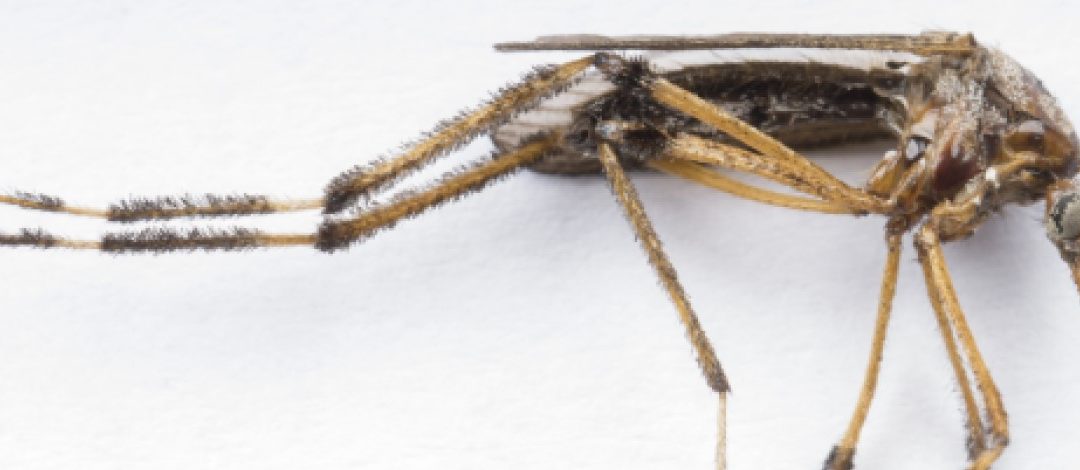
by Laura Tiu | Jun 6, 2025
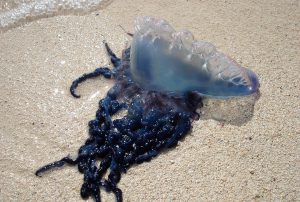
The colonial Portuguese man-of-war.
Photo: NOAA
I love summer; going to the beach, snorkeling, kayaking and grilling in the backyard. But summer comes with its own share of challenges. One of my least favorite summer guests is bugs. The list of bugs I dislike is long, but I’d like to focus on a few that like to torment us all.
Mosquitos are one of summer’s bad actors. Mosquito lay their eggs and their larvae mature in both manmade and natural water-holding containers such as bird baths, plants, bucket, used tire and holes in trees. Some mosquitos just bite while others carry disease. The easiest way to get rid of mosquitos is to get rid of any water-holding containers in the area.
Ants, in particular fire ants, are another unwelcome summer arrival. This invasive species is aggressive, and their painful stings can injure both humans and animals. Fire ant nests look like large mounds of dirt and typically have multiple openings. You must kill the queen to completely eliminate a colony. Even if the queen is killed, surviving ants may inhabit the mound or make a new mound until they die off. Some treatments that may work to get rid of these pests include baits, pesticides and boiling water.
Many biting flies, yellow flies are my least favorite, persistently attack man and animals to obtain a blood meal. Like mosquitoes, it is the female fly that is responsible for inflicting a bite. These biting flies like shady areas under bushes and trees and wait for their victim to pass by. They typically attack during daylight hours, a few hours after sunrise and two hours before sunset. Currently there are no adequate means for managing populations. Traps are sometimes effective in small areas such as yards, camping sites, and swimming pools.
In the water, jellyfish are the most common summer pest. While not bugs, their reputation for stinging people puts them in a similar category with the above-mentioned pests. Sea lice, actually the larval form of the thimble jellyfish, is a common near shore pest, while Portuguese Man-O-War and the box jellyfish can give a very painful sting. Another type, comb jellies, are not true jellyfish and do not sting. I you get stung, rinse the sting site with large amounts of household vinegar, or jelly-fish-free ocean water, for at least 30 seconds. Do not rub sand or apply any pressure to the area or scrape the sting site.
The University of Florida – IFAS has several good publications with information about these pests and more detail on how to manage them. Check out these publications if you, like me, have had your fill of summer pests.
Florida Container Mosquitos: https://edis.ifas.ufl.edu/publication/IN1315
Ant Control – https://sfyl.ifas.ufl.edu/lawn-and-garden/sustainable-fire-ant-control/
Yellow Flies – https://edis.ifas.ufl.edu/publication/IN595
Jellyfish – http://nwdistrict.ifas.ufl.edu/nat/tag/jellyfish/
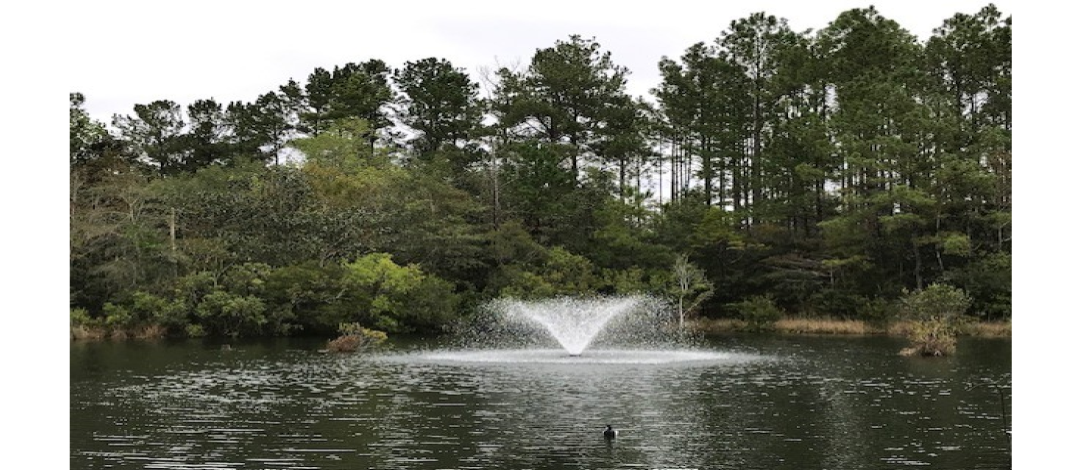
by Laura Tiu | Mar 7, 2025
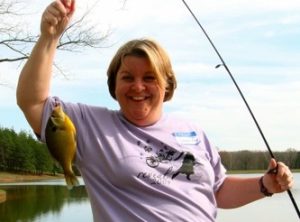 As spring approaches, I’ve been receiving more calls from local pond owners looking for advice on preparing their farm ponds for the season. Managing a pond in the Florida Panhandle can be tricky—especially when dealing with spring-fed ponds. While these ponds are often beautifully clear, their constant water turnover makes management a challenge.
As spring approaches, I’ve been receiving more calls from local pond owners looking for advice on preparing their farm ponds for the season. Managing a pond in the Florida Panhandle can be tricky—especially when dealing with spring-fed ponds. While these ponds are often beautifully clear, their constant water turnover makes management a challenge.
If you’re wondering how to get your pond ready for spring, here are some key considerations and resources to help guide you.
Start with a Water Quality Test
The first step in assessing your pond’s health is testing the water. I always recommend that pond owners bring a pint-sized water sample in a clean jar to their local Extension Office for analysis. Keep in mind that not all offices offer this service, and public testing options are limited. However, private labs and DIY testing kits are available—though they can be costly.
The most important parameters to check are pH, alkalinity, and hardness: pH should ideally range between 6 and 9 for a healthy fish population. Local ponds often hover around 6.5, making them slightly acidic.
Alkalinity and hardness measure the water’s ability to neutralize acids and buffer against sudden pH changes. For optimal pond health, alkalinity should be at least 20 mg/L, but many local ponds fall below this level.
Improving Pond Water Quality
If your pond’s water quality is less than ideal, there are two common ways to improve it: liming and fertilization.
Applying Agricultural Lime: Properly adding agricultural lime can raise alkalinity and stabilize pH levels. However, in high-flow ponds, lime tends to wash away quickly, making this method ineffective for ponds with constant discharge.
Fertilizing to Boost Productivity: Fertilization increases phytoplankton growth, which supports the pond’s entire food web, benefiting juvenile fish and invertebrates. Unfortunately, like lime, fertilizer is quickly washed out of high-flow ponds, making it ineffective in these cases.
Making the Best of Your Pond
If your pond has a continuous discharge due to spring flow, the best approach may be to embrace its natural clarity, even if it doesn’t support a thriving fish population. However, if your pond retains water without frequent outflow, you may be able to enhance its productivity with the right amendments.
For personalized guidance, contact your local UF/IFAS Extension Office. You can also start by reviewing this helpful fact sheet: Managing Florida Ponds for Fishing. By understanding your pond’s unique characteristics, you can make informed decisions to keep it healthy and enjoyable throughout the season.
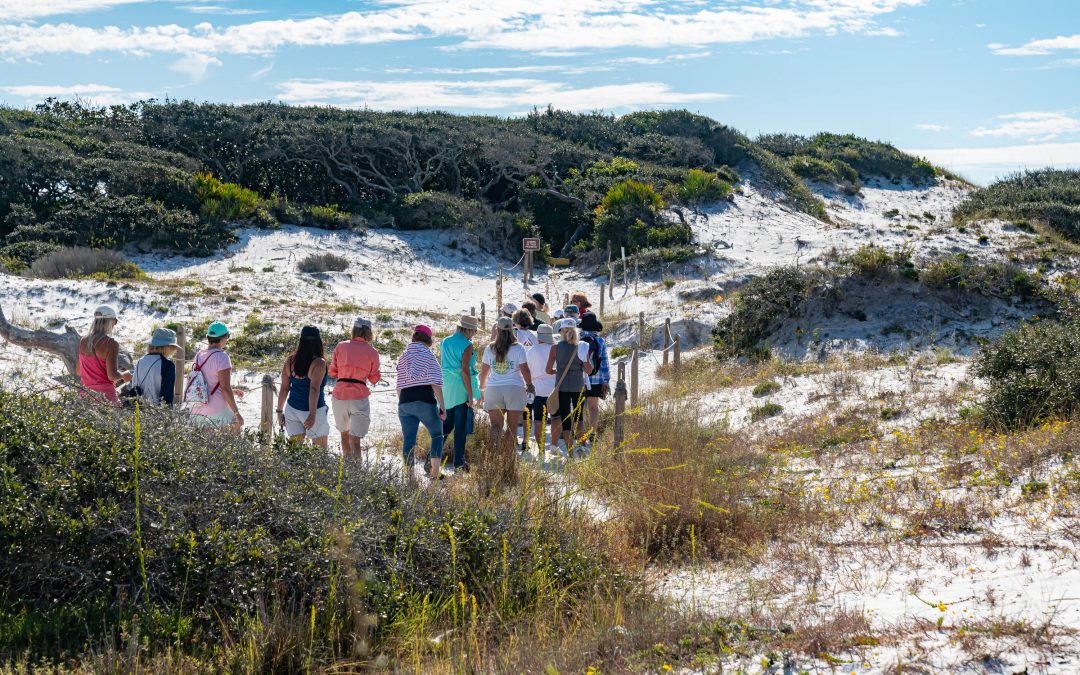
by Laura Tiu | Sep 13, 2024
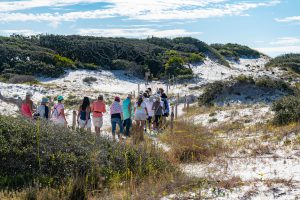
Western Dune Lake Tour
Walton County in the Florida Panhandle has 26 miles of coastline dotted with 15 named coastal dune lakes. Coastal dune lakes are technically permanent bodies of water found within 2 miles of the coast. However, the Walton County dune lakes are a unique geographical feature found only in Madagascar, Australia, New Zealand, Oregon, and here in Walton County.
What makes these lakes unique is that they have an intermittent connection with the Gulf of Mexico through an outfall where Gulf water and freshwater flow back and forth depending on rainfall, storm surge and tides. This causes the water salinity of the lakes to vary significantly from fresh to saline depending on which way the water is flowing. This diverse and distinctive environment hosts many plants and animals unique to this habitat.
There are several ways to enjoy our Coastal Dune Lakes for recreation. Activities include stand up paddle boarding, kayaking, or canoeing on the lakes located in State Parks. The lakes are popular birding and fishing spots and some offer nearby hiking trails.
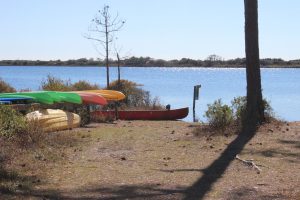
The state park provides kayaks for exploring the dune lake at Topsail. It can be reached by hiking or a tram they provide.
Walton County has a county-led program to protect our coastal dune lakes. The Coastal Dune Lakes Advisory Board meets to discuss the county’s efforts to preserve the lakes and publicize the unique biological systems the lakes provide. Each year they sponsor events during October, Dune Lake Awareness month. This year, the Walton County Extension Office is hosting a Dune Lake Tour on October 17th. Registration will be available on Eventbrite starting September 17th. You can check out the Walton County Extension Facebook page for additional information.

by Laura Tiu | Aug 10, 2024
My son and his girlfriend were visiting last week and wanted to go fishing. Since she had never been deep sea fishing before, we decided that the best course of action would be to take the short four-hour trip on one of Destin’s party boats.
Party boats, also known as a head boat, are typically large boats from 50 to 100 feet long. They can accommodate many anglers and are an economical choice for first-time anglers, small, and large groups. The boat we went on holds up to 60 anglers, has restrooms, and a galley with snacks and drinks, although you can also bring your own. The cost per angler is usually in the $75 – $100 range and trips can last 4, 6, 8, or 10 hours.
We purchased our tickets through the online website and checked in at the booth 30 minutes before we departed. Everyone gets on and finds a spot next to a fishing pole already placed in a holder on the railing. For the four-hour trip, it is about an hour ride out to the reefs. On the way out, the enthusiastic and ever helpful deckhands explain what is going to happen and pass out a solo cup of bait, usually squid and cut mackerel, to each angler. When you get to the reef, you bait your hooks (two per rod) and the captain says, “start fishing.”
The rods are a bit heavy and there are some tricks you need to learn to correctly drop your bait 100 feet to the bottom of the Gulf. The deckhands are nearby to help any beginners and soon everyone is baiting, dropping, and reeling on their own. There are a few hazards like a sharp hook while baiting, crossing with your neighbor’s line and getting tangled, and the worst one, creating a “birds nest” by not correctly dropping your line. Nothing the deckhands can’t help with.
When you do finally catch a fish, you reel it up quickly and into the boat where a deckhand will measure it to make sure it’s a legal species and size and then use a de-hooker to place the fish in your bucket. After about 30 to 40 minutes, the captain will tell everyone to reel up before proceeding to another reef. At this time, you take your fish to the back of the boat where the deckhands put your fish on a numbered stringer and on ice.
For the four-hour trip, we fished two reefs. We had a lucky day with the three of us catching a total of 16 vermillion snapper, the most popular fish caught on Destin party boats. It’s a relaxing ride back to the harbor during which the deckhands pass the bucket to collect any tips. The recommended tip is 15-20% of your ticket price. These folks work hard and exclusively for tips, so if you had a good time, tip generously.
Once back in the harbor, your stringer of fish is placed on a board with everyone’s catch and they take the time for anyone that wants to get some pictures with the catch. Then, you can load your fish into your cooler, or the deckhands will clean your fish for you for another tip. If you get your fish filleted, you can take them to several local restaurants that will cook your catch for you along with some fries, hush puppies and coleslaw. It is an awesome way to end your day.
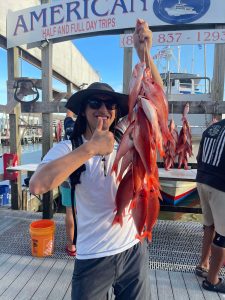
A happy angler after a party boat excursion.
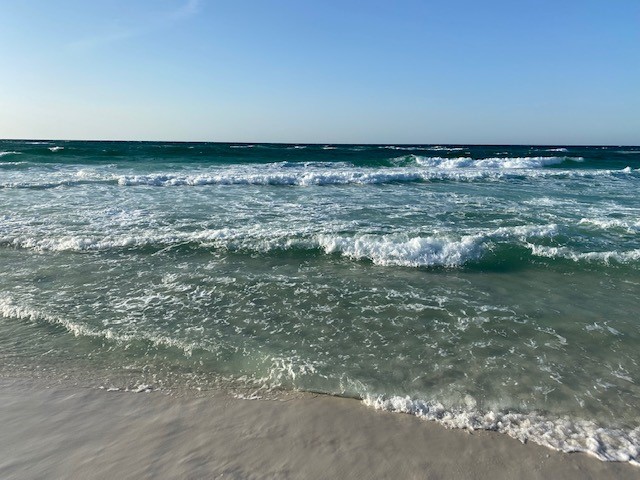
by Laura Tiu | Apr 13, 2024
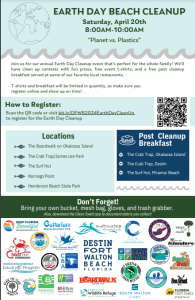 What is 54 years old and growing better with age? Earth Day! Every year on April 22, we mark the anniversary of the birth of the modern environmental movement.
What is 54 years old and growing better with age? Earth Day! Every year on April 22, we mark the anniversary of the birth of the modern environmental movement.
Prior to 1970, America and Americans lived with a host of environmental threats and concerns from automobile emissions due to leaded gas, industrial waste, and unchecked air pollution.
While a public awakening began to grow after 1962 when Rachel Carson published Silent Spring, it wasn’t until 1969 when a massive oil spill in Santa Barbara, California inspired long-term change.
Senator Gaylord Nelson, an environmentally conscious junior senator from Wisconsin, spearheaded the movement when he saw the potential to engage students to raise public consciousness about air and water pollution. He partnered with Denis Hayes, a young activist, to organize campus teach-ins and to scale the idea to a broader public.
April 22 was chosen as the date, a weekday falling between Spring Break and Final Exams, to maximize the greatest student participation. They branded the event Earth Day and promoted the event nationally. The first Earth Day inspired 20 million Americans, 10% of the population at the time, to participate and demonstrate against the harmful impacts of unsustainable industrial development.
This first Earth Day united groups that had previously been fighting individually against oil spills, polluting factories and power plants, raw sewage, toxic dumps, pesticides, freeways, the loss of wilderness and the extinction of wildlife. It also let to the creation of the United States Environmental Protection Agency and many of the environmental protection laws we have today, including the Clean Water Act.
Today, Earth Day celebrations continue, both as protests and celebrations. Here in the Florida Panhandle, one way we celebrate Earth Day is by supporting beach cleanups. It is one avenue to give back to our communities and help take care of the environment that we love.
Why not take the time to celebrate 54 years of progress and tradition? Find a way to celebrate Earth Day this coming April 22, 2024.











